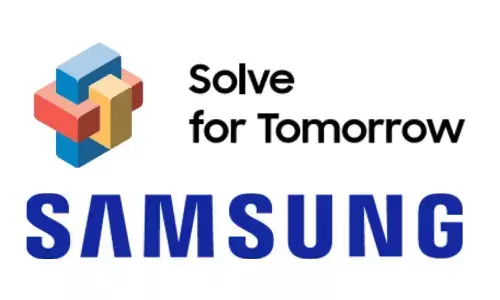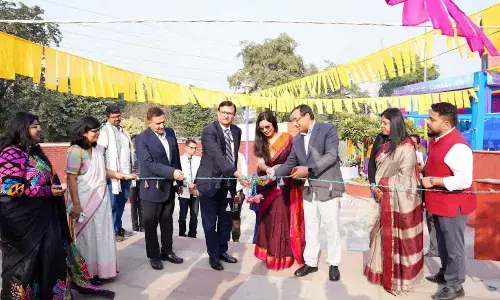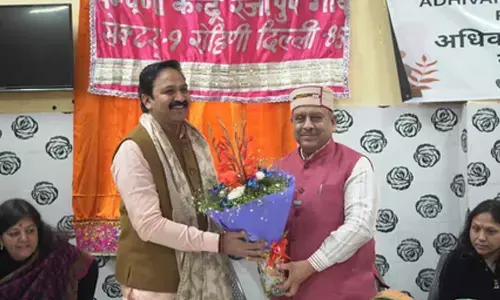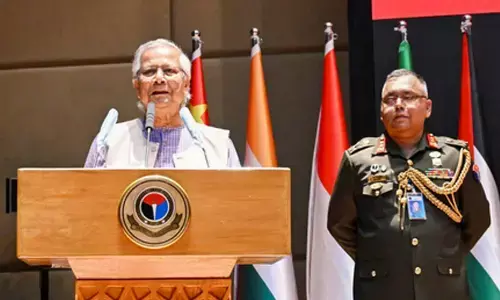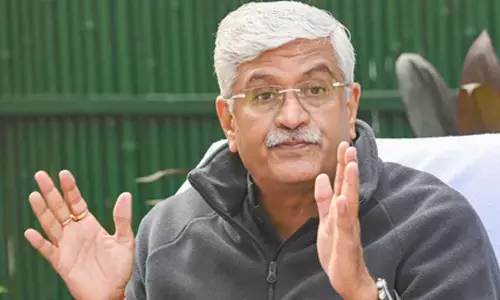Traditional versus digital literacy

Education sector no longer can afford to remain insulated from the booming technology era A lot of education providers have started using newer technological tools to improve pedagogy, transparency, connectivity, collaboration etc The age old method of one size fits all is no longer pertinent Transition from traditional learning to digital literacy is happening at a rapid pace in almost all
Education sector no longer can afford to remain insulated from the booming technology era. A lot of education providers have started using newer technological tools to improve pedagogy, transparency, connectivity, collaboration etc. The age old method of ‘’one size fits all” is no longer pertinent. Transition from traditional learning to digital literacy is happening at a rapid pace in almost all educational fields.
It was with forethought that education is placed in concurrent list in our Constitution and thus is imminent with the changes in the society. Traditional education defined as teacher-centred generally stresses basic educational practices and expects mastery of academic learning and assessment in the core subjects of math, reading, writing, science and social studies. Digitalisation is the integration of digital technologies into everyday life by the digitisation of everything that can be digitized. The literal meaning of digitalisation gives an apparent idea of development and technology dependent world.
There is no time to lose, as technology change accelerates exponentially with emerging new digital platforms and devices; Education sector also like other business models is expected to deliver a seamless and meaningful cross-channel engagement model for their students, staff and parents or loose relevance.
Degree of meaningful engagement transitions through traditional (informative), digital (transaction) emerging (collaborative) and converging (meaningful) phases. Traditional schools have to adopt a continuous improvement strategy, launching new digital channels early and iterating based on customer feedback. Huge information data (students, staff, parents, etc) is to be digitalised in any organisation and requires humongous finances.
Technology adoption typically occurs in an S-curve, with exponential growth of technology adoption from ‘early adopters’. Not only is the diffusion of individual technologies exponential, but the rate of diffusion is accelerating, and with each new technology release, the ‘early adopters’ and ‘early majority’ move further to the left.
It took more than 70 years for telephones to reach 50 per cent household penetration, compared with 28 years for radio, and 10 for internet access. Website development and periodical updates on one side and simultaneous research and development of the staff and students on another side pose acute threat to the educational organisation. No organisation can retain their employees with mere allocation of Laptops, I-pads or just computers; thought provoking, comfortable environment, convenient timings is the second challenge that an institution faces during transformation.
Furthermore, parents have become prosumers i.e. a consumer who is unusually interested in the results and services delivered by educational institution. These prosumers no more trust advertisement or brand name (78 per cent of consumers trust peer recommendations versus 14 per cent who trust advertisements). Prosumers digitally globally and constantly are connected and use social media for advice to each other, and what’s more, they heed each other’s advice. Educational institutions in order to satisfy the parents not only need good infrastructure, connectivity with other educational organisations but also need collaborations. Managements have to frequently reiterate (to the parent) measures taken to retain confidence in the cost and quality of education.
The expectations of the new ‘generation Y’ or ‘digital natives’ (born after 1980s and are technically connected have access and skills to digital technologies), challenge the status quo of existing organisations, as Mark Zuckerberg did with the invention of Facebook. In this way they are determining the way digital communication technologies are being used, and are initiating social behaviours that are transmitted to other generations. Above all, Generation Y no longer is content with the old corporate and political model.
- Dr T Sudha









